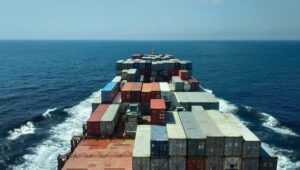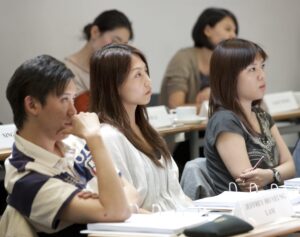Commercial relations between Portugal and China are at an all-time high. Eight years into the strategic partnership which bonds the two countries, China is now placed as Portugal’s third main client outside of the EU. It is the country that has most taken advantage of the government’s Golden Visa programme and there are now more Chinese learning Portuguese as a foreign language than ever before.
Against this upbeat picture, Portugal’s Deputy Prime Minister Paulo Portas flew to Macau on Sunday in an attempt to further strengthen relationships, but bombed embarrassingly by arriving two hours late for his first meeting.
Portas’ visit was also designed as an attempt to convince China’s Three Gorges (CTG) – now the main shareholder in Portugal’s energy company EDP – to accept a special tax which the government is implementing among large electricity enterprises.
CTG is said to be against the tax since, commenting a month ago when it was first mooted, it smacked of an “unpleasant surprise” and was a “serious” issue – especially as the government had said there would be no changes to the energy sector’s regulatory framework.
But this issue was only part of Portas’ mission. Speaking at a conference in Macau – the last of Portugal’s colonies to obtain independence (1999) – the deputy prime minister and former minister for foreign affairs was at pains to reaffirm Portugal’s potential worth.
“This is the time to invest in Portugal,” he declared. “Portugal’s economy is ending its technical recession. We have registered signs of economic growth for two quarters – the best year ever in tourism and the best year ever in exports.”
Acknowledging fears that remain over whether the country could still be struggling with its financial troubles, Portas continued: “I believe I can say that this is the time to carefully think of investing and creating wealth and job opportunities in Portugal.”
A couple of days earlier, the leader of the CDS-PP – partners in the government’s coalition – stressed that China has become one of Portugal’s greatest business allies.
“The results of our strategic partnership with China are amazing. During the last decade, China has climbed 18 spots on the list of Portugal’s main clients,” Portas affirmed.
The deputy prime minister also revealed the government is keen to “continue to welcome national and foreign investment”.
Portas arrived in Macau last Sunday to take part in the fourth Fórum Macau, created by China in 2003.
He described the event as China’s “realisation of the importance of Portuguese-speaking countries in the construction of its new international economic and political policies” and stressed that the number of people who speak Portuguese around the world, especially in Latin America and Africa, is “exponential”.
But despite his efforts, Portas may have dropped the ball by arriving two hours late for his first scheduled meeting, a consular event with the Portuguese community in Macau.
Hoje Macau, a local Portuguese-language newspaper, strongly criticised Portas and described his late arrival as “indescribable”.
“Portas arrived two hours late, did not justify himself or apologise and made a speech to an empty room,” said the newspaper’s report.
A spokesperson for the deputy PM explained his overdue arrival was caused by a ferryboat running late.
Nonetheless, the newspaper claimed that many of the Chinese officials did not wait around and left feeling “offended”, considering Portas’ late-show an “act of disrespect”.
But this aside, it cannot be argued that the Portugal-China love affair is bearing very positive fruit.
Europe’s plan to attract foreign investment by offering ‘golden visas’ to those who launch companies, buy real estate or invest substantial amounts of money in Portugal has attracted a huge number of Chinese investors. Indeed, the Chinese account for three quarters of golden visas attributed, and Paulo Portas claims the resulting investment will represent a €300 million income for the country.
The freedom that the ‘golden visas’ offers has led to Chinese investors buying land around Parque das Nações, near Lisbon, to build apartments and office buildings and to sell on to other Chinese buyers.
Portuguese as a language is also gaining “extreme importance” among universities throughout China. A Portuguese professor at a Chinese university was cited by Expresso newspaper as saying “the boom of Portuguese as a learnable language has been fantastic these last five or six years”. Chinese students apparently see the language as a tool which will guarantee them a job in areas such as journalism or diplomacy.
However, despite all the good news, Portugal is not letting up.
As the country reaches the final stages of its adjustment plan with troika, the government is keen to convince commercial partners that Portugal is “on the rise” and not in any way the land of doom and gloom.
Paulo Portas’ Macau trip was all about reinforcing that message. It just remains to be seen whether he cut the mustard, or was viewed only as a man who missed the ferryboat.
By Michael Bruxo news@algarveresident.com
























